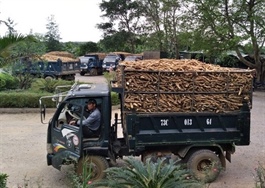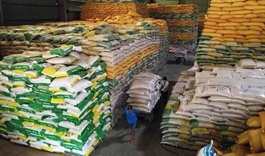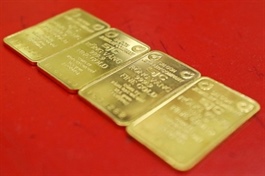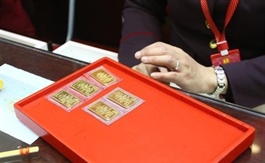Rubber exports hit US$607 million in Q1
Rubber exports hit US$607 million in Q1
Việt Nam exported a total of 414,317 tonnes of rubber, earning over US$607 million in the first quarter of 2024, according to the General Department of Customs.
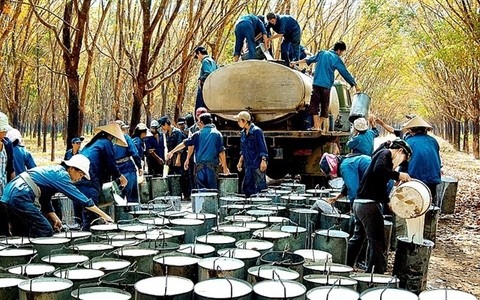
During the three-month period, Vietnamese rubber commanded an average price of $1,466 per tonne in international markets, marking a 5.3 per cent rise from the corresponding period in 2023. — Photo tapchicongthuong.vn |
In March alone, the country shipped 116,100 tonnes of rubber to foreign markets, generating more than $180 million. These figures indicated an increase of 8.5 per cent in volume and 14.3 per cent in value compared to the same period in 2023.
During the three-month period, Vietnamese rubber commanded an average price of $1,466 per tonne in international markets, marking a 5.3 per cent rise from the corresponding period in 2023.
China remained the largest buyer of Vietnamese rubber, accounting for 52.83 per cent of the country's total rubber exports. China imported nearly 61,340 tonnes worth $90.72 million, representing a volume increase of 4.5 per cent and a value increase of 7.9 per cent compared to the previous month. The average export price of rubber to China stood at $1,479 per tonne, reflecting a 3.2 per cent increase from February 2024 and a 7.1 per cent increase from March 2023.
In the first quarter of the year, China imported 287,850 tonnes of rubber valued at more than $407 million, posting a 1.6 per cent decrease in volume but a 2.7 per cent increase in value compared to the same period last year, according to the Agency of Foreign Trade under the Ministry of Industry and Trade.
In March, rubber exports to various markets, including India, Germany, Turkey, Russia, Sri Lanka, Belgium, and the US, experienced significant growth in both volume and value compared to the same period last year. Notably, India recently decided to reduce import duties on electric vehicles manufactured by companies that invest at least $500 million and commence domestic production within three years. This development bodes well for the demand for rubber in India's tire production.








